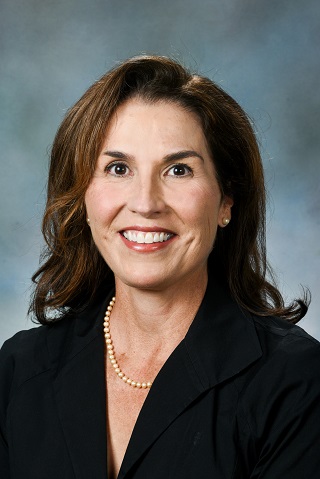
06 Oct Michelle Moyers
What is your vision for Knoxville 10 years from now?
My vision for Knoxville is pretty simple – I want us to learn from our mistakes and work more collaboratively across sectors to facilitate change. In my own work, I have seen the power of community partnerships, engagement and collaboration. While perspectives may differ, I think one unifying thing we have in common is the value of place – where we live, work and play matters.
What are you reading that is on your nightstand?
Brave by Cheryl Strayed
What is your favorite Knoxville memory?
My favorite memory but also most angst-filled was moving away from home to attend the University of Tennessee. I was from a small town outside of Memphis. Most of my classmates who were going to college chose to stay closer to home. I of course did not make that choice and I had only visited UT one time prior to moving into my residence hall. My parents dropped me off on move-in day and I got homesick the minute their car pulled out of the parking lot. Two weeks after they dropped me off, I was diagnosed with mono and was encouraged by a clinic doctor to withdraw and go home to recuperate. Needless to say, I was devastated by that news and drug myself back to my dorm room where I immediately called my mother in tears.
How could this possibly be a favorite memory? I think this was the first moment that I can recall being truly uncomfortable and realizing that I was on my own. I was 300 miles from home and sick, and while it was tempting to consider going home and having my mom take care of me, I chose to stay enrolled at UT. Over the years, my “freshman mono” experience became family lore. I think I earned some respect from my family by choosing NOT to come home and sticking it out through freshman year -quite an accomplishment for the baby of the family.
What is the best advice you have received from a mentor, and who was that mentor?
The most powerful leadership relationship I have ever had was with Mark Jones. Mark served as the director of the health department until 2010.
I learned two important things from him. 1) Don’t be afraid to try new things. He was always open to ideas and encouraged staff who came to him with things they wanted to try. I personally approached him on several occasions with things I wanted to do. His response was always the same, “write up a proposal and send it to me.” I would do as he asked and write up a proposal. He would review it and ask a few questions. He always cleared the way for me to do what I had outlined.
While that seems very simplistic, I experienced the power and the energy that emanates from a leader who fosters employee creativity and is comfortable with new ideas. Because of his support, I was able to launch an internal worksite wellness and employee recognition initiative, both of which are still in place today. One of the biggest weaknesses and challenges in working for the government is changing the status quo. The mantra of “this is the way we have always done it” is not an uncommon defense when faced with a new idea or new suggestion in how to conduct business. Mark was a long-term government employee; yet, he regularly rebelled against the status quo through this practice.
2) Personally acknowledge the small things. Mark made it a point to visit each employee on their birthday or to thank them for a job well done. Those brief face-to-face interactions built an important connection with employees. In an era where it is far easier for leaders to send an e-mail or make a phone call, Mark made a concerted effort to have a presence outside the administrative suite. The importance of making employees feel valued is something that routinely gets overlooked by leadership, but costs virtually nothing.
What advice would you give to your 16 year old self?
You got this.


Sorry, the comment form is closed at this time.